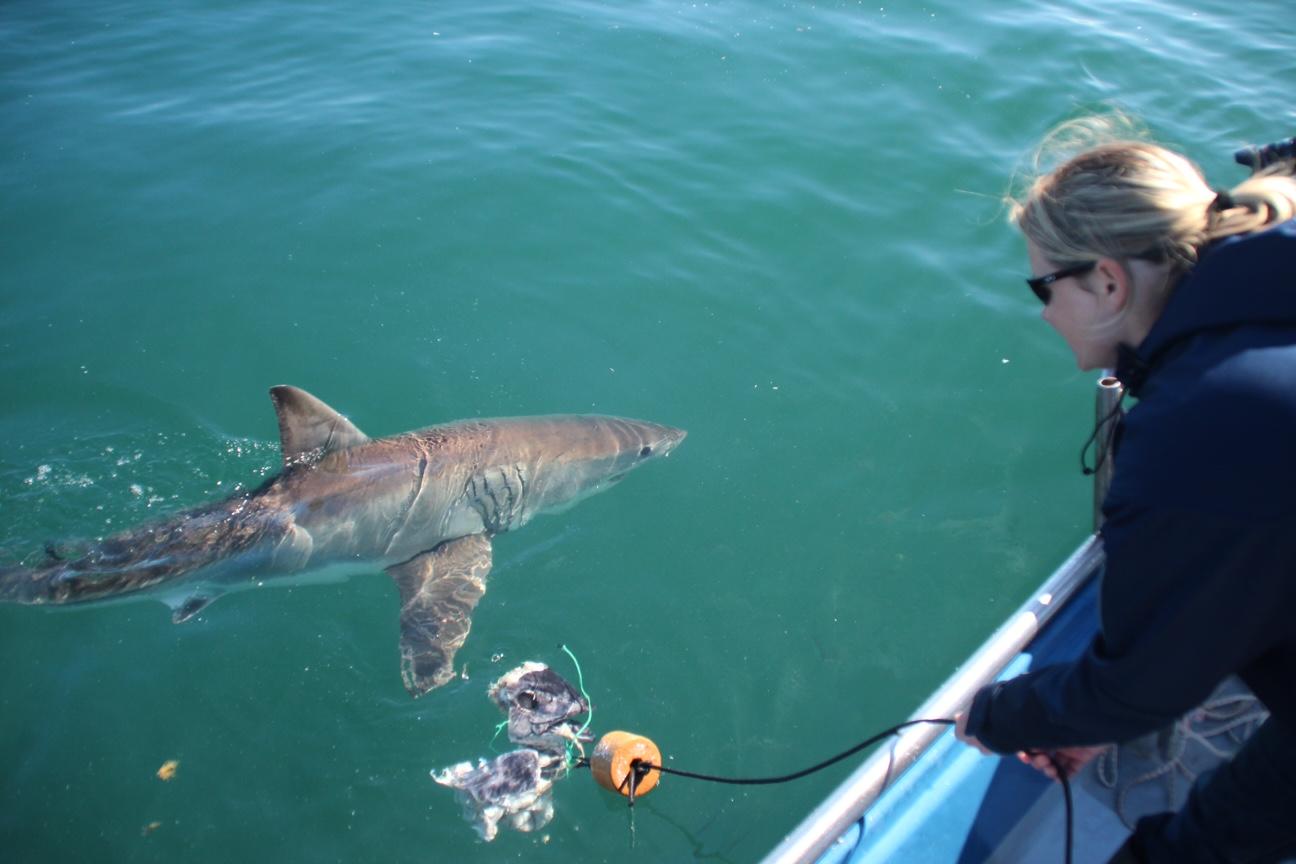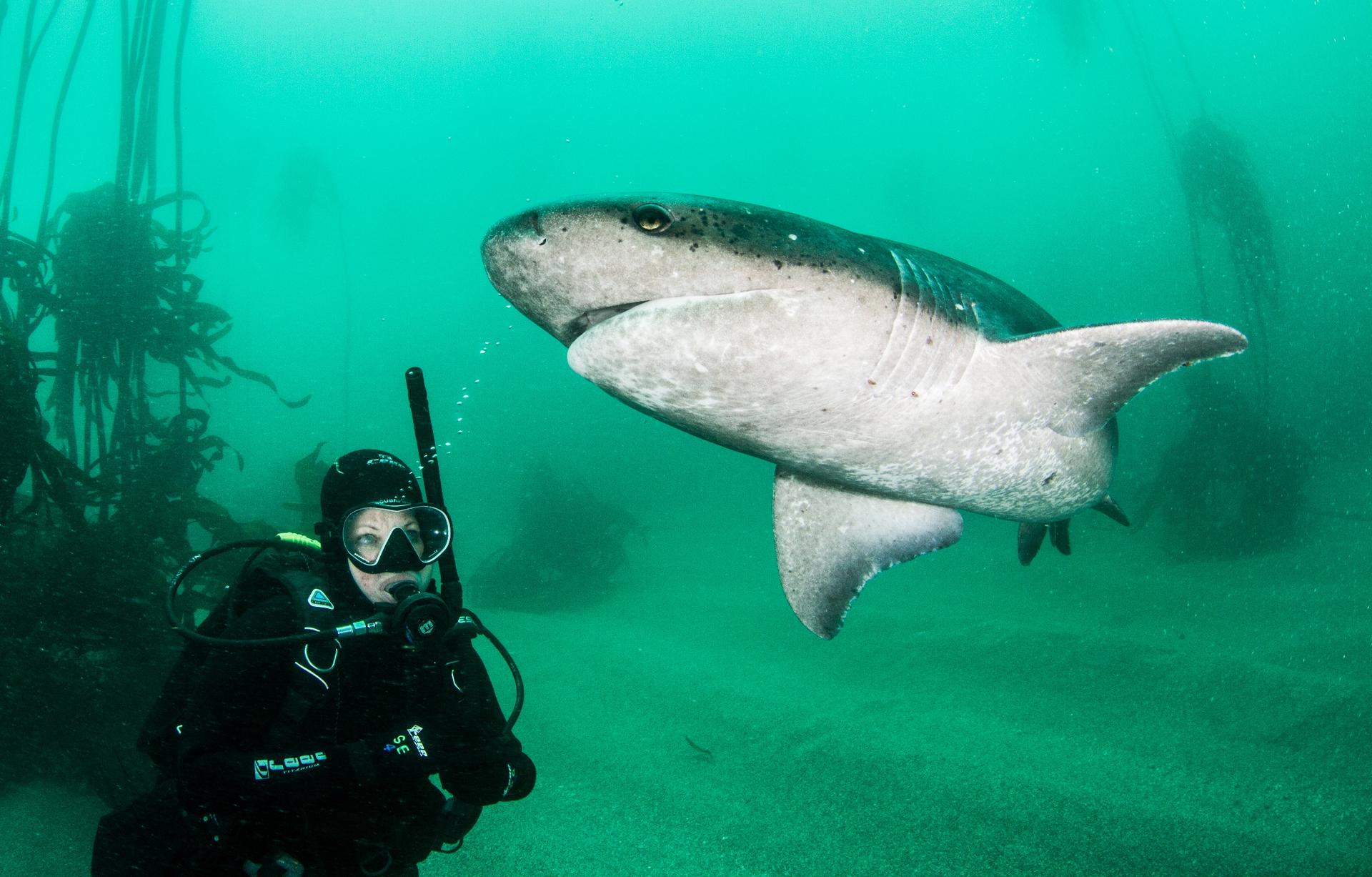These female marine scientists have a message for girls: Sharks aren’t just for boys
Alison Kock with a sevengill shark in South Africa.
When Alison Kock was a little girl, her father would take her out fishing for lobster. That was when she started to foster her passion for the ocean — and sharks.
While fishing, shysharks would sometimes get caught in the crawfish nets. Kock watched as the sharks would wrap their tails around their heads and cover their eyes.
“I was really concerned," Kock says. "My dad said to me, ‘Listen, they'll be fine. Just pick them up, kiss them on the nose and release them back into the water.’”
Likewise, Cynthia Wigren, the president of the Atlantic White Shark Conservancy, has been fascinated by wildlife since she was young. It was her trip to South Africa and cage diving experience with great white sharks that really piqued her interest in the species.
"I think people are fascinated with sharks because of their power and their speed," she says. "For me, that first moment of being underwater with a shark and just watching its movement, its grace … they're just these amazing animals."
In an effort to engage young girls in the fascinating world of sharks, Wigren is now the director of the Gills Club Symposium, which promotes girls' education in science, technology, engineering and math — known as STEM. The club held an event this Tuesday and Wednesday where girls met and learned from 10 top female shark researchers at the New England Aquarium in Boston.
Like Kock, many of the other scientists spoke about their interest in the field developing as early as 5 to 10 years of age. Some of the girls at the symposium talked about being at school and telling classmates they liked learning about sharks. Many of the girls heard the same message in reply: Sharks are for boys.
"These girls, if they're watching Shark Week and they're not seeing female scientists and then they're being told at school that sharks are just for boys," explains Wigren, "they're being discouraged from following their passion. So for us connecting them to these female shark scientists doing amazing work was really important."
Wigren says that the symposium works to draw connections between STEM and shark research. The program hopes to utilize that enthusiasm and interest in sharks, while showcasing how math and engineering are used in shark research — something very different from how the girls would normally learn in school.
When Kock entered the field about 20 years ago, she was the only woman researcher on her boat.
"I was very fortunate to have fantastic male role models," she says. "And I've heard of a lot of stories where women don't have that."
Kock says there's been a major shift since then, and that far more women have become involved in the predominantly male field. She hopes that her devotion to her work and excitement will inspire young women and girls to enter the field.
It seems to be working. At the recent symposium, girls as young as 5 years old were performing dissections on sharks. "They got stuck in there! You know, I was so impressed with them," Kock says.
"For me, it was fantastic to see the diversity of these women and what they're doing," says Kock. "It's just been a fantastic experience."

Our coverage reaches millions each week, but only a small fraction of listeners contribute to sustain our program. We still need 224 more people to donate $100 or $10/monthly to unlock our $67,000 match. Will you help us get there today?
